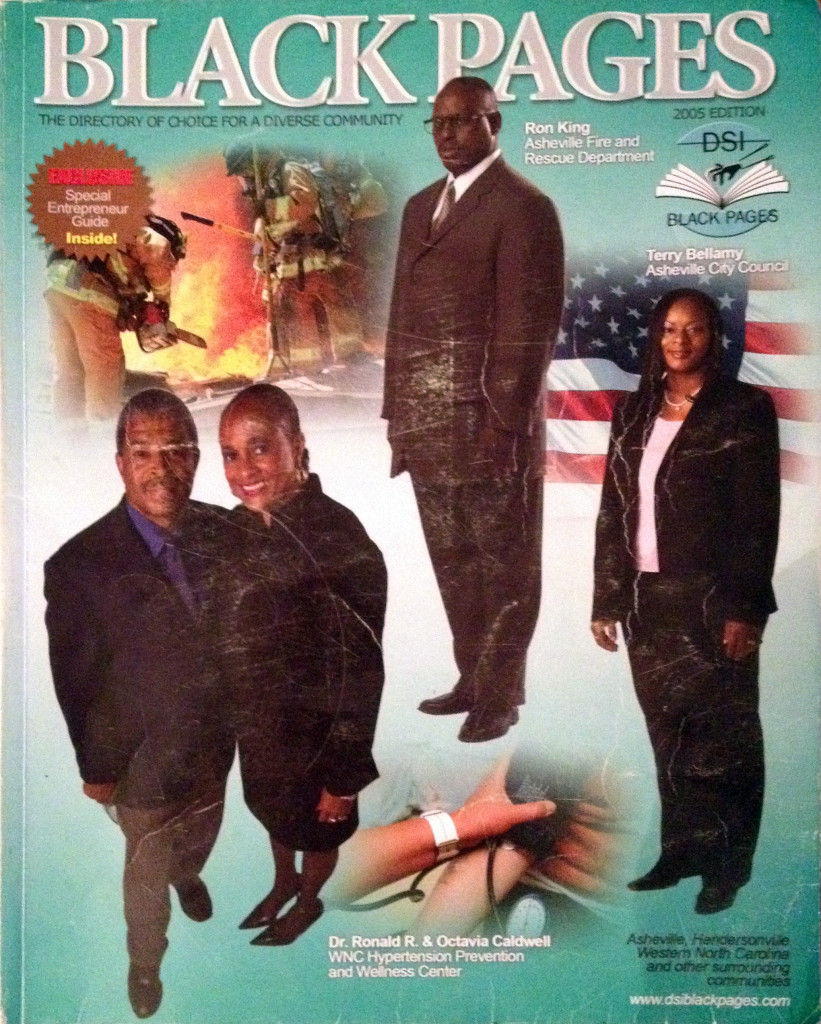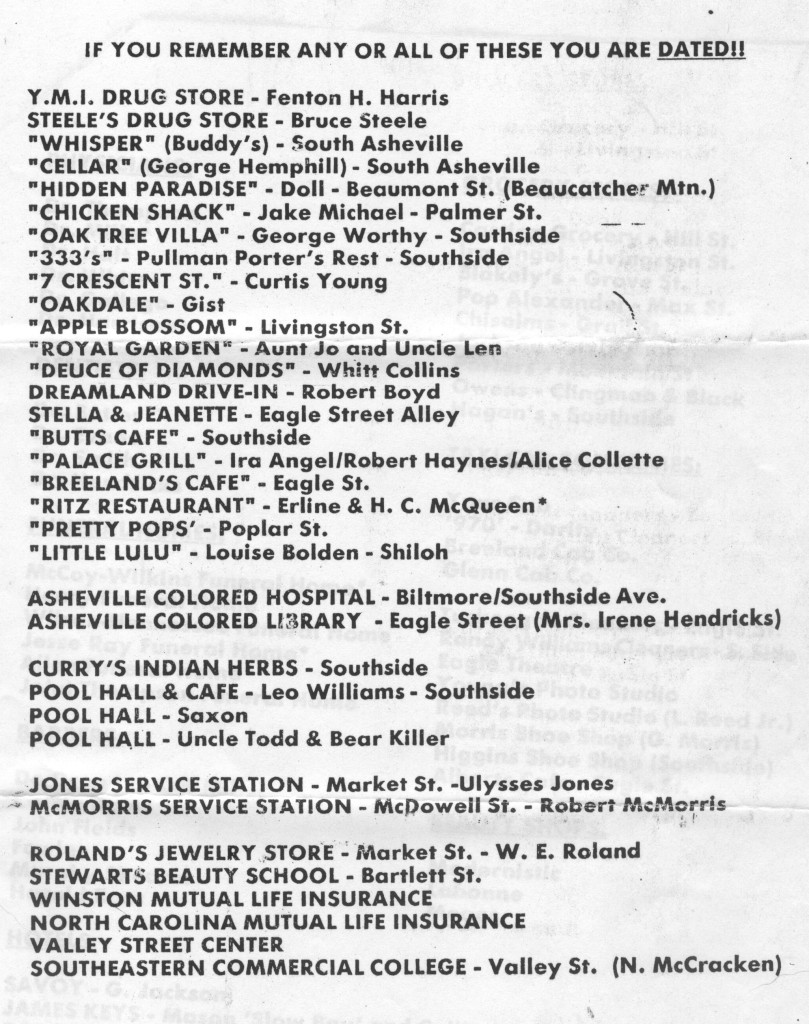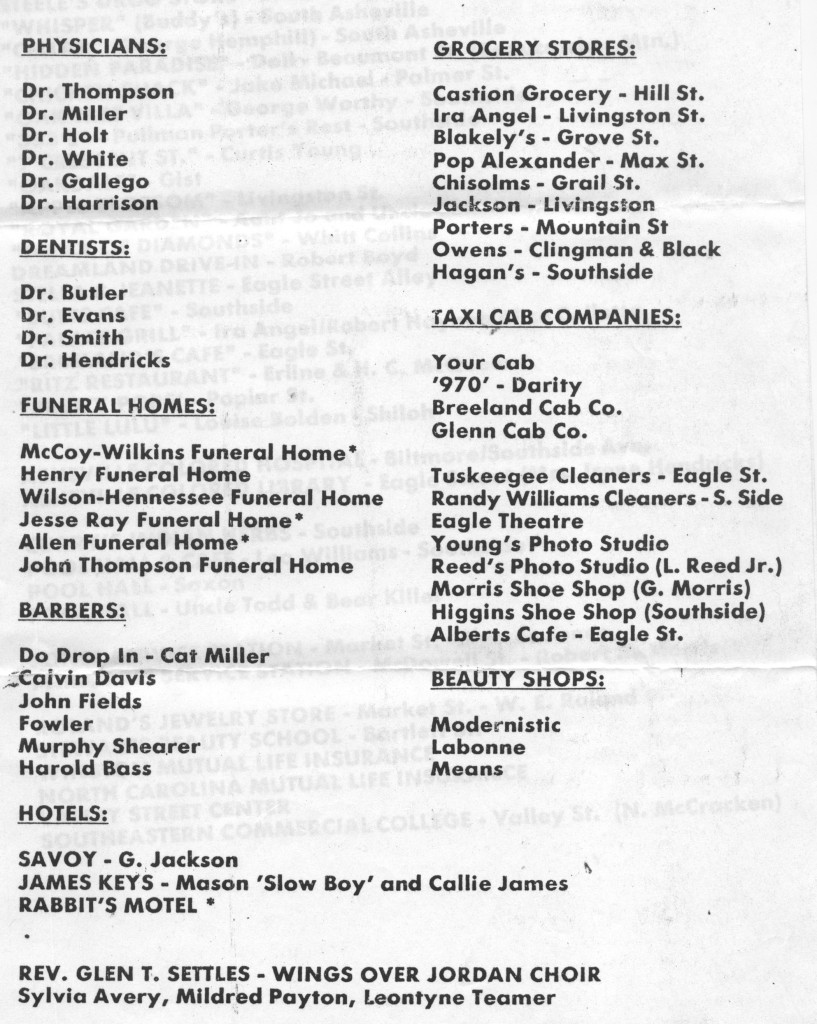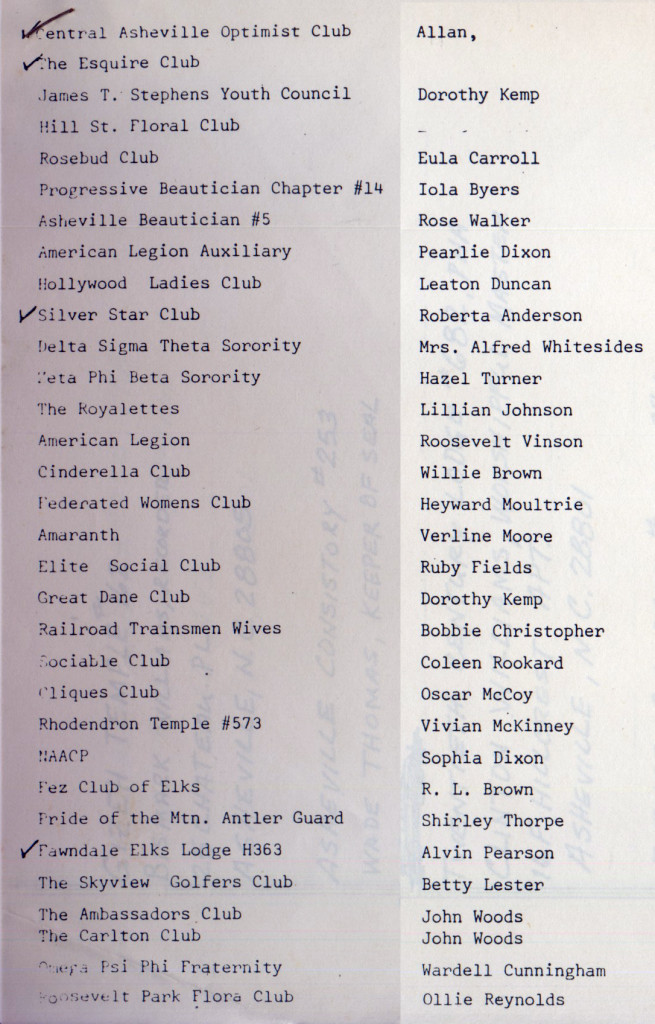Ethel Pearson Dailey made history – perhaps not in the usual way, but in many small ways. She left behind scrapbooks full of images, clippings and remembrances of her life. She and her husband had no children, and at some point Ethel’s keepsakes were donated to the YMI. As a YMI volunteer I have been searching for and digitizing materials to share with the community, and was thrilled to discover Ethel’s scrapbooks.
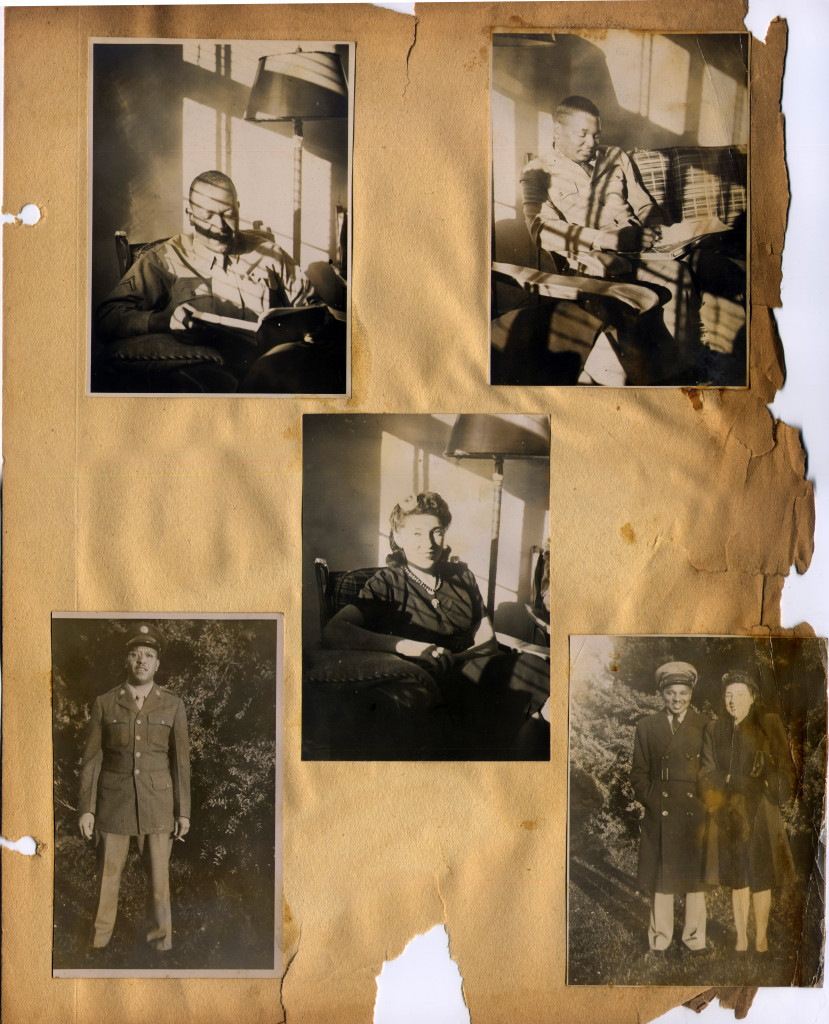
Ethel was born November 11, 1906,1 the eldest of five children born to John F. Pearson, Jr & Emma C. Clayton. She grew up in Asheville with her parents and four siblings. She was married some time before 1930 to a William H. Marsh,2 and then on December 24, 1939 married Ruben Jasper Dailey.3 When I first saw Ethel’s name, I imagined she was related to E. W. Pearson, another notable Asheville resident, but in researching Mrs. Dailey’s & E. W. Pearson’s ancestry I haven’t found any connections between their families.
The sad thing about Ethel’s scrapbooks is that all of them are damaged (some worse than others) by aged, unstable paper, dirt, mold, and perhaps water damage. In some of them, the pages are all broken and disintegrating, but the images she attempted to preserve are a beautiful remembrance of her life, and I am glad for the chance to have seen them and helped preserve them.
Ethel became a member of Alpha Kappa Alpha sorority in 1953, and she kept a handmade and hand painted scrapbook of some of her sorority memories. I have posted some photos from this scrapbook in an album on YMI’s Facebook page. 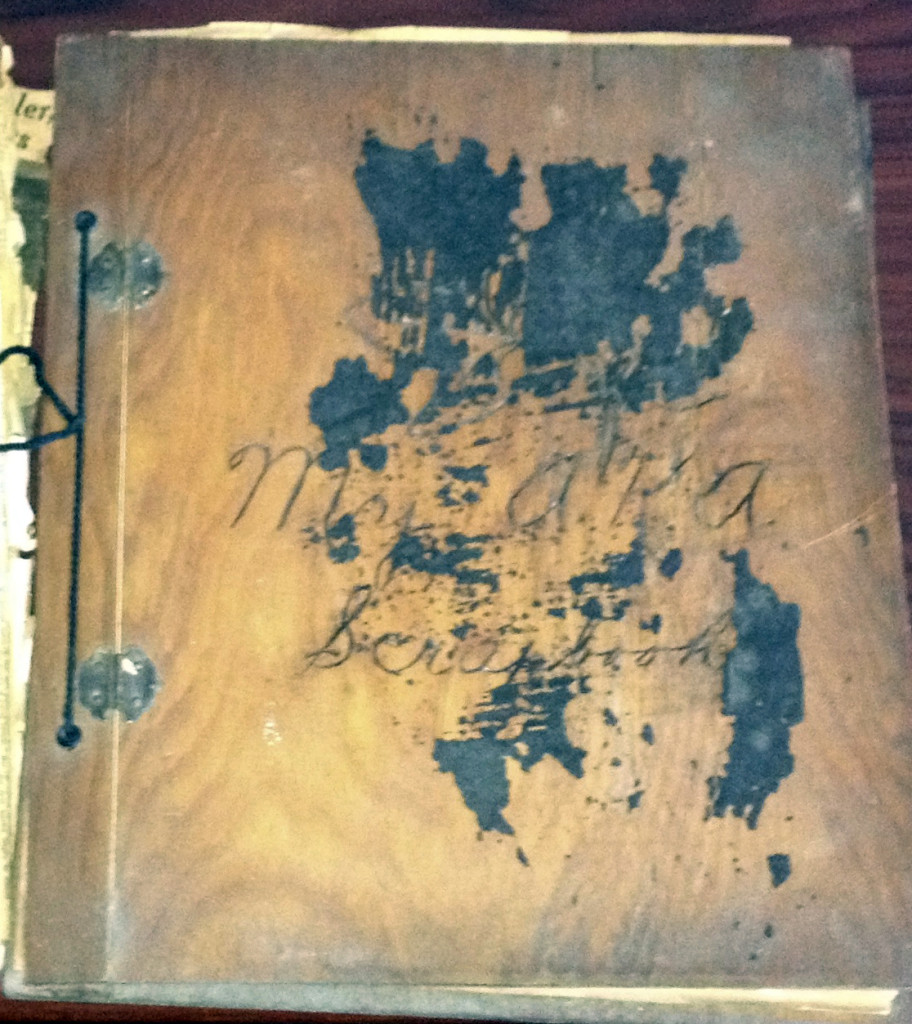
She also kept a personal scrapbook of greeting cards and ephemera, but that one was unfortunately the most damaged scrapbook, and the contents are mold stained and damaged.
Another scrapbook Ethel kept was a collection of the obituaries of African Americans of Asheville. The earliest clipping is from Jan 1, 1950 and the latest appears to be from Sept 11, 1967. Most of the earlier clippings feature local Asheville residents, although later clippings include statewide and nationwide news of African Americans. They are not strictly chronologically placed, and often no date is included with the clipping. Some clippings are layered over others. As a whole, this scrapbook is a beautiful collection celebrating the lives of African Americans of Asheville. Some of the obituaries are accompanied by newspaper stories, particularly if a crime was involved. These are often sensationalized, and racially derogatory, but typical of writings from the time, especially in the southern states. As a genealogist, I treasure obituaries for the family history information they contain. In the case of many African American people who lived quiet lives in their communities, the obituary or death notice may have been the only time their name appeared in print. While these obituaries are available in the newspaper, Ethel’s act of collecting them, and preserving them in her scrapbook created a new story, and a new view of history. I have been transcribing and additionally researching histories of the people featured in the obituaries in Ethel’s scrapbook. Two obituaries I included on my personal blog are here.
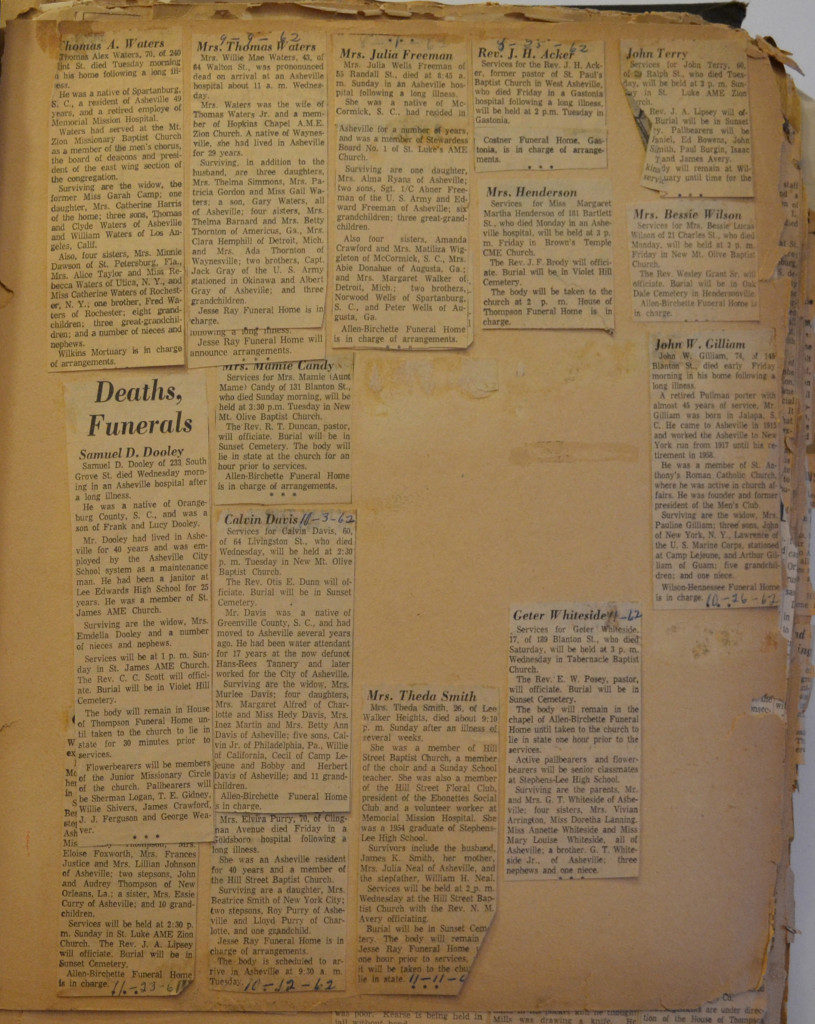
a sample page from Ethel’s scrapbook
Ethel also kept a travel scrapbook of a trip to California that she made while Ruben was stationed in Sacramento in 1945. This is such a treasure! Ethel saved programs from entertainments they attended, napkins from the restaurants, newspaper clippings, telegrams, few photos, but lots of ephemera to remember her travels.
In June, 1945, Ethel (and Ruben?) attended church services with the Fellowship Church of All Peoples in San Francisco. She kept three programs and a newsletter from their church. As their website states:
The Church for the Fellowship of All Peoples is an interfaith, interracial, intercultural community of seekers dedicated to personal empowerment and social transformation through an ever deepening relationship with the Spirit of God in All Life.”
One church newsletter Ethel saved was called, UNIQUE: Published “Every Now and Then” by the Young People of the FELLOWSHIP CHURCH OF ALL PEOPLES, dated March 15, 1945. It was full of encouragement for the congregation in support of Japanese American citizens at a time they were under intense scrutiny, being rounded it up and sent to interment camps, being discriminated in every facet of life. It included a story about Time Magazine’s U.S. “Hero of the Week” a Nisei soldier killed in Leyte.
Frank T. Nachiya, 25, native of Hood River, Oregon, where American-Japanese soldiers’ names were erased from the memorial honor roll by the American Legion Post has been named US Hero of the Week by Time Magazine. February 26. (1945)
I can’t help but wonder how Ruben and Ethel were influenced as a young couple having grown up in segregated North Carolina by this progressive, integrated, diverse congregation and their work for social justice. Was it hard to return to Asheville and face Jim Crow attitudes? I hope that they felt empowered to continue pushing for greater civil rights and inclusion for all people.
Prior to joining the Navy, Ruben was employed as a bellhop, and Ethel was a teacher. In her scrapbook, Ethel saved the 1942 letter of recommendation to Asheville’s Draft Board from Ruben’s employer at the George Vanderbilt Hotel, commending his work as a bellman for the past fourteen years. Ruben had told his employer he wanted to volunteer for the Army and apply for Officers Candidate School and asked for a letter of recommendation. His employer wrote the following of Ruben:
For the first four years, he worked with us during the summer in order to earn money to go to school; the next two years he caught school during the winter and worked with us during the summer. For the past eight years, he has been with us continually.
We have always found him to be honest, trustworthy, and a hard-working employee. His intelligence is far above the average colored employee.5
For me, the last sentence only serves to illustrate further the kind of attitudes black people all over the south faced. Exceptional people (then, as now) were considered exceptions to the rule, and their success often seemed to justify systems that held the bulk of the black community as second class citizens. Ruben completed the Navy Training Course for Steward second class in December of 1944. Like many of the male leaders in Asheville’s African American community, Ruben returned from military service with pride and authority and a great drive to improve conditions for his fellow citizens.
Ruben became the first black attorney to practice in Buncombe County, NC. He was instrumental in bringing about the integration of Transylvania County schools. Ruben helped form the Legal Aid Society of Buncombe County in 1967,6 then in 1969 he became Asheville’s first black City Council member.4 Ethel worked as a teacher, and was also a chairman with the YWCA of Asheville in 1941.7 She also was a member of the service sorority Alpha Kappa Alpha in Asheville’s Gamma Gamma Omega chapter. Although I haven’t found records of Ethel’s involvement with YMI, I have to think she supported YMI’s efforts to uplift the race. Ethel and Ruben Dailey worked throughout their lives to improve conditions for Asheville’s African American community. Ethel died November 21, 1992, but before her death, she entrusted her personal scrapbooks to the YMI in the hopes of leaving a record of her life as an inspiration to those who follow. And so she has.
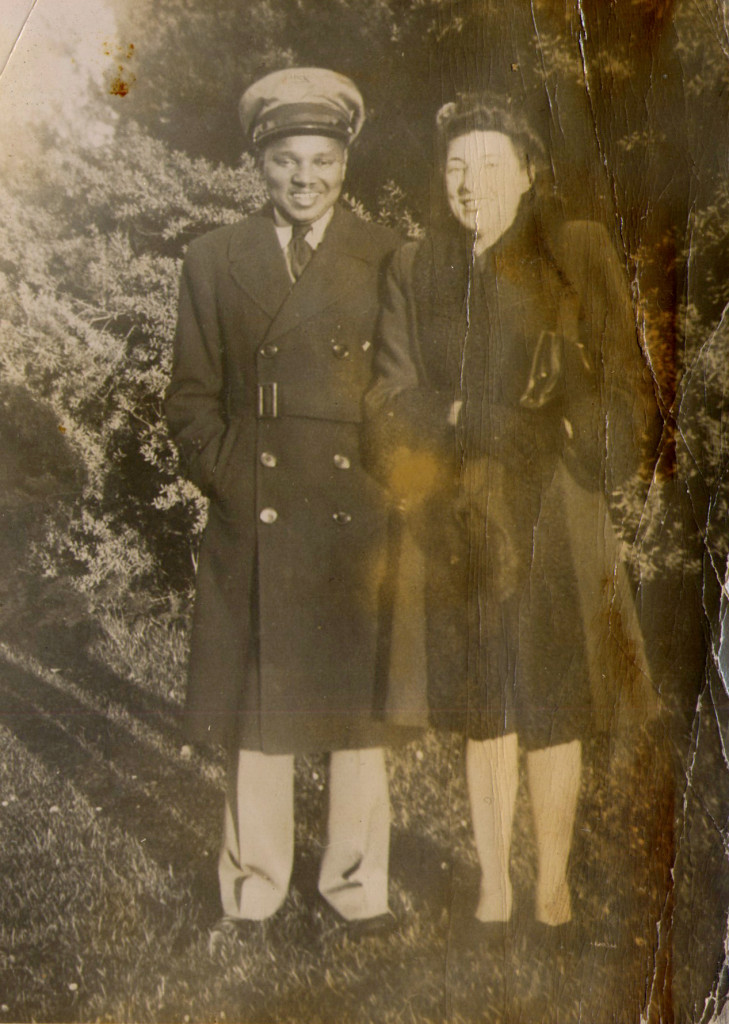
circa 1945
Notes
- Ancestry.com. North Carolina, Death Indexes, 1908-2004 [database on-line]. Provo, UT, USA: Ancestry.com Operations, Inc., 2007.
- Year: 1930; Census Place: Asheville, Buncombe, North Carolina; Roll: 1675; Page: 20B; Enumeration District: 0001; Image: 279.0; FHL microfilm: 2341409.
- “North Carolina, County Marriages, 1762-1979 ,” index and images, FamilySearch (https://familysearch.org/pal:/MM9.1.1/VXTQ-47Y : accessed 05 Jan 2014), Reuben Dailey and Ethel Pearson, 1939.
- “Ruben J. Dailey.” Wikipedia. Wikimedia Foundation, 17 Nov. 2013. Web. 05 Jan. 2014.
- Jones, Leonard. Letter to Eugene Ward, Chairman, Draft Board #2. 18 Nov. 1942. TS Ethel Pearson Daily Scrapbook. YMI Archives, Asheville.
- Pro Bono Teamwork: A tradition of the Buncombe County Bar. 28th Judicial District Bar. Web. http://bit.ly/1hpnSYj 05 Jan 2014.
- “Yesterday and Today.” YWCA of Asheville 100 Years, 2007. Web. 05 Jan 2014.





